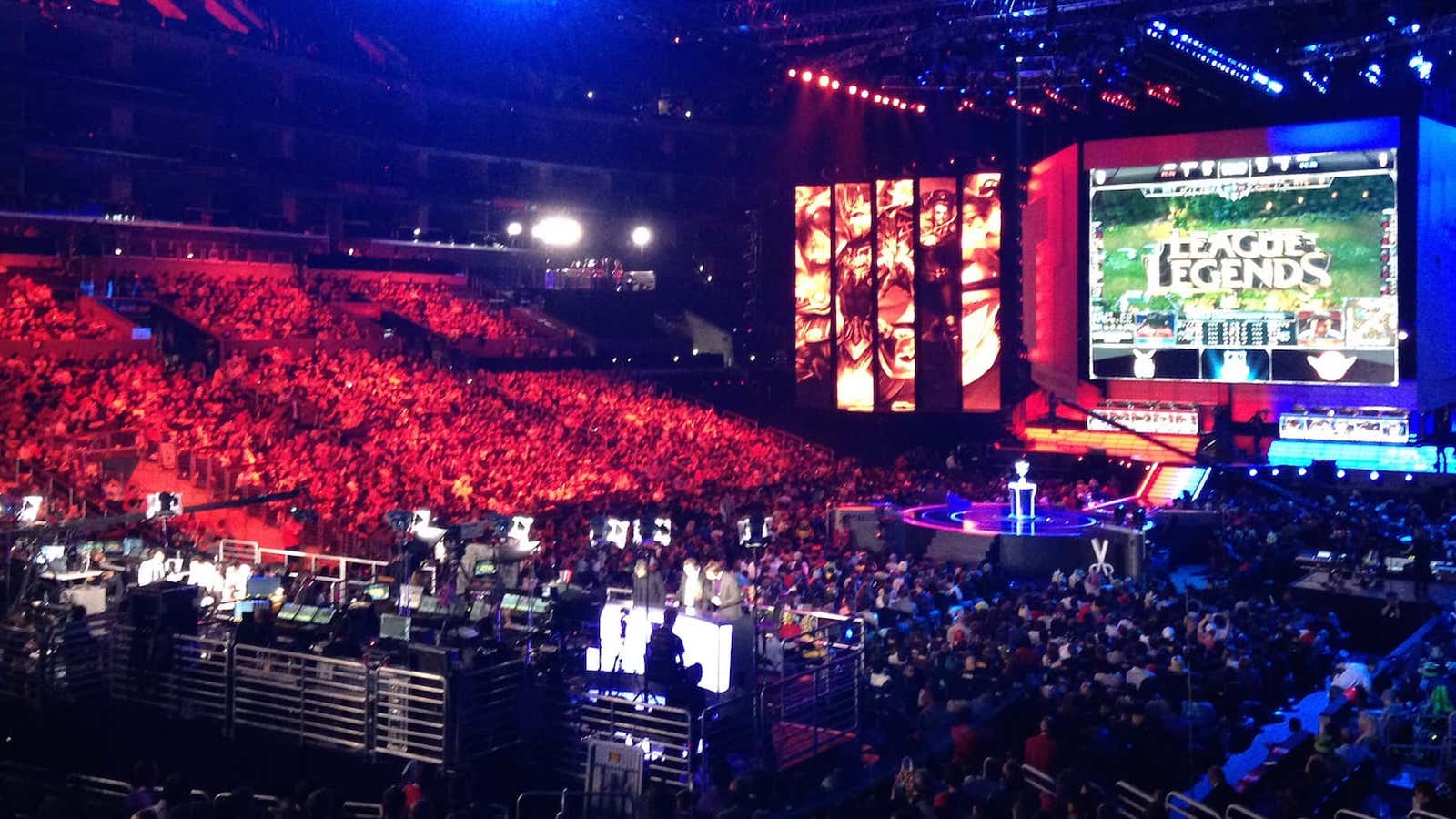The competitors in some of the world’s biggest sporting tournaments barely break a sweat. But that doesn’t mean that eSports—that is, people watching other people play video games—lack drama. Indeed, some 188 million people around the world tuned in to eSports competitions last year, according to research firm SuperData.
SuperData estimates that the eSports sector will be worth close to $2 billion in 2018, with a global audience of 240 million viewers. With that sort of money at stake, it’s no wonder that big companies are taking notice. The latest heavyweight to get in on the action is video-game publisher Activision Blizzard, which is spending a reported $46 million to acquire professional gaming pioneer Major League Gaming (MLG).
According to Activision boss Bobby Kotick, the deal, announced yesterday (Jan. 4), “furthers our plans to create the ESPN of eSports.” MLG runs a network of online channels, organizes live events, and operates online tournaments for gamers to find matches.
At the moment, Google and Amazon dominate the business of broadcasting and watching games online. They own the platforms–YouTube and Twitch, respectively–where gamers go to publish their videos and watch others play. User-generated content provides these platforms with the scale they need to dominate the sector and rake in ad dollars. Twitch made $1.6 billion from gaming videos in 2014, according to SuperData.
Games publishers, instead of competing head-on with these platforms, have emphasized quality and engagement with players. Riot Games is probably the best example of this approach: it’s the creator and owner of the hit game League of Legends, and also runs a professional league and tournaments for the title. In 2014, its world championship, held at the 67,000 capacity World Cup Stadium in Seoul, attracted more than 11 million viewers at its peak. This helped Riot net $1.3 billion in revenue from in-game transactions that year.
Activision is going down a similar route, pursuing quality over quantity. Kotick says the MLG purchase is meant to boost the creation of premium content–professionally produced shows, not user-generated videos–that will hopefully prove attractive to both consumers and advertisers alike. Activision will get this content into living rooms by setting up its own TV channel distributed by cable and satellite providers, Kotick told the New York Times. It won’t limit the games that it features to its own titles.
Activision isn’t the only publisher betting on eSports. Electronic Arts, which owns the FIFA and Battlefield franchises, launched its Competitive Gaming Division last month. Microsoft, creator of the Halo games, committed $1 million in prize money for its Halo tournament, signaling a renewed focus on eSports.
The platforms aren’t sitting still: YouTube launched a gaming app and website in August last year, gathering all of its disparate gaming content in one place, from live streams to pre-recorded play-throughs and fan reviews. Twitch, acquired by Amazon for $970 million in 2014, is also now reporting huge numbers, like delivering 10 billion messages a day via its chat service.
